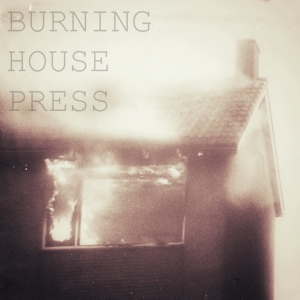
(Peaks Island view from the rocks by Julia Lee Barclay-Morton)
Too fucking late for all that
So, how do you talk about something you missed, that is so obvious, so blindingly obvious and so irrevocable when someone dies?
I am about to go up and help spread, hurl, sprinkle, lay…what is it you do with ashes anyway? That.
At a cottage, the cottage, the cottage where we spent summers when I was little, in Maine, in a scruffy cottage that was what was a scruffy island in the 1960s and 70s and then changed and is now unrecognizable and filled with McMansions, dotting the back shore like ill-fitting suits on someone who would rather be in jeans and a t-shirt, and not trendy ones either.
Here, we will lay hurl sprinkle spread my stepfather David’s ashes into the Atlantic Ocean in Casco Bay but not in front of what was our cottage that was sold for a large amount of money thanks to the priceless view and location on rocks that is not allowed anymore in these sensible, tedious, overpriced times, because David and his brother and sister could no longer afford the taxes and the necessary repairs. So, we will go in front of a cousin’s place, next door.
David himself had not returned to the cottage in years. This place where his mother died when he was in Vietnam, that had been his refuge as a child, that he had written about when it was owned by his great aunts, that his siblings sparred over as if it were the bones of their dead mother and two fathers, all dead early of alcoholism, far too early.
But The Cottage was the refuge, the place that rocked us all to sleep, until it was the scene of everyone’s Oedipal nightmares. And here is where I fell in love with Maine and the ocean and never wanted to leave and look how I’m not even writing about David and what he meant to me when that is precisely what I’m trying to write about and failing, failing, failing—a point so sore I—who can write about anything—can’t write about because I missed it. I missed how of all of them (and there were four), he was my actual father. I mean not biological, and not the one who looked fatherly – he was the last one, from when I turned 17, but he was the one who I knew from age 3, the one who brought me to theater rehearsals and writing and the cottage and saved me from a very dangerous person and who had a nervous breakdown that led to me living with my grandparents and then wrote a play and I came back and everything was glamorous for a short time before it was clear he was gay and my mother and he were divorcing and then everyone started dying of AIDS, except David, which made no sense, to him or anyone else, but was true.
And the party just stopped. And I became a teenager and know-it-all and thought I would change the world, and then I didn’t, and David and I argued about so much—about theater, about my mother, about my first marriage, about alcohol consumption, about who got to tell the story, damnit, and so I fucking missed it.
I missed that this—this is your father—the one you argue with—the one who gives a shit enough to challenge you—that is imperfect and sometimes you hate but you never hate—and who hands you over to the world and trusts that you will kick its motherfucking ass. Which he did.
This is not to say my fourth father wasn’t stellar. He was, and he provided levels of stability and nurture that no one before him did, but the fact is I was already 17, I was already mostly grown. The crazed semi-anarchist scared out of her wits who directed plays then wrote them and practically spit at anyone who tried to constrain her in any way, she was David’s daughter.
The one with both certain talents and an ability to self-destruct like nobody’s business, David’s daughter for sure. And how could I have missed it?
The phrase ringing in my ears and making me cry daily is David saying to me after I had eulogized Tom at his funeral, “I’m so glad Tom could be a father to you.” He meant it, and said it kindly. Now, I know it must have cost him, and I fear he died—suddenly, of a heart attack so I could not say any of this to him—thinking he had not been a father to me, or maybe knowing he had been, but thinking I did not.
In any case what I am trying and failing to write about is how you can miss something so obvious until it is too late.
Julia Lee Barclay-Morton, @wilhelminapitfa PhD, is an award-winning writer and director, whose prose and plays have been produced and published internationally. She was chosen for the IATI 2018 play development program; her newest play ‘On the edge of/a cure’ is being produced by Rogue Players as a workshop/staged reading in May at The Playroom in NYC. Publications include Ohio Edit, NYTE, Prentice-Hall, Stockholm Review, The Other Stories, Burning House Press and TL;DR. She was founding Artistic Director of Apocryphal Theatre in London (2003-11), awarded PhD at Northampton, UK in theatre and philosophy (with full fellowship), and BA with High Honors in Theater from Wesleyan University (US). Having taught at many universities in London and NYC, she now works editing, coaching, and leading her own workshops and retreats for writers.

Leave a comment